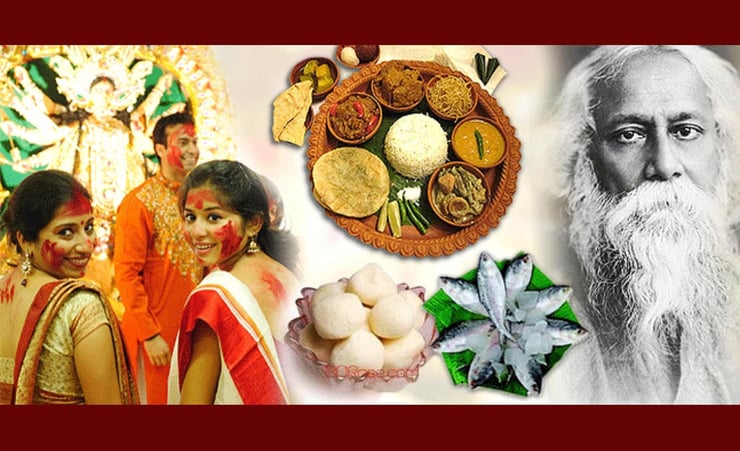Spreading Tagore and Roshogullah in NZ

New Zealand is home to immigrants drawn from different parts of India- be it Punjab, Gujarat, Bengal, Maharashtra or Tamil Nadu.
Bengalis represent a small proportion of the Indian diaspora (approx. around 1500-2000), yet the community has many cultural associations across NZ.
In the fifth part of our series on Indian cultural associations in Aotearoa, we focus on the Probasee Bengalee Association of New Zealand, which has served the Bengali community for over two decades.

With 350-400 registered members, Probasee is one of three registered Bengali associations in Auckland The association came into being in 1998.
“Bengali people from India started coming to NZ in the 1970s, but the number increased in the early 1990s. In 1992, a few Bengali families organised the first Durga Pujo in Auckland. Eventually, by 1998 there were more Bengali families in Auckland, and Probasee Bengalee Association of New Zealand was formed to cater to them,” says Sayan Ray, Probasee general secretary.

The non-profit organisation aims to promote the rich cultural heritage of Bengal in NZ.The association conducts cultural, social and religious events throughout the year.
“We encourage the youth to attend these events so that youngsters who are born and brought up in NZ can experience and stay in touch with their roots. We want to keep Bengali culture and heritage alive for future generations,” Shopan Dasgupta, Probasee vice-president, says.
Ray believes it is vital for ethnic communities to preserve their identity .
Since Bengal is known for its art, craft, music and, of course, food ( who doesn’t know mishit doi (sweetened yoghurt) and roshogullah), the association organises Bengali plays, musical programmes and concerts featuring renowned poets like Rabindranath Tagore, Kazi Nazrul Islam and Sukumar Ray, to name a few.
According to Dasgupta, the Bengali plays involve people in age groups ranging from 10-75 years, who actively contribute to scriptwriting, direction, musical compositions, singing, set and props production, costume arrangements, designing of tickets and brochures, advertising and publicity, and other responsibilities.
“Our events are open to members of Probasee as well as to the general public," Dasgupta points out.
Probasee runs a theatre group that stages a Bengali 'natok' (drama) annually. In addition, the association hosts festivals such as Durga Puja, Lakshmi Puja and Saraswati Puja, as well as other events, including cricket, soccer, table tennis, badminton, quiz nights and competitions.
Food festivals are organised to mark the Bengali New Year, Vijayadashami, and Mahalaya.
“By celebrating different festivals, traditions and customs, we are providing the platform and resources to preserve Indian culture," Ray explains.
Probasee has planned events for the rest of the year. They include the Bengali new year, Rabindra Nazrul Sandhya, Anandamela, Durga Puja, Lakshmi Puja, etc., and various sporting activities.
Ray foresees a greater participation by the elderly and the youth in the growth of Probasee.
In closing, Dasgupta highlights the relief work undertaken by Probasee during natural calamities , as well as the pandemic, over the past two years. The association plans to expand its relief efforts globally.



